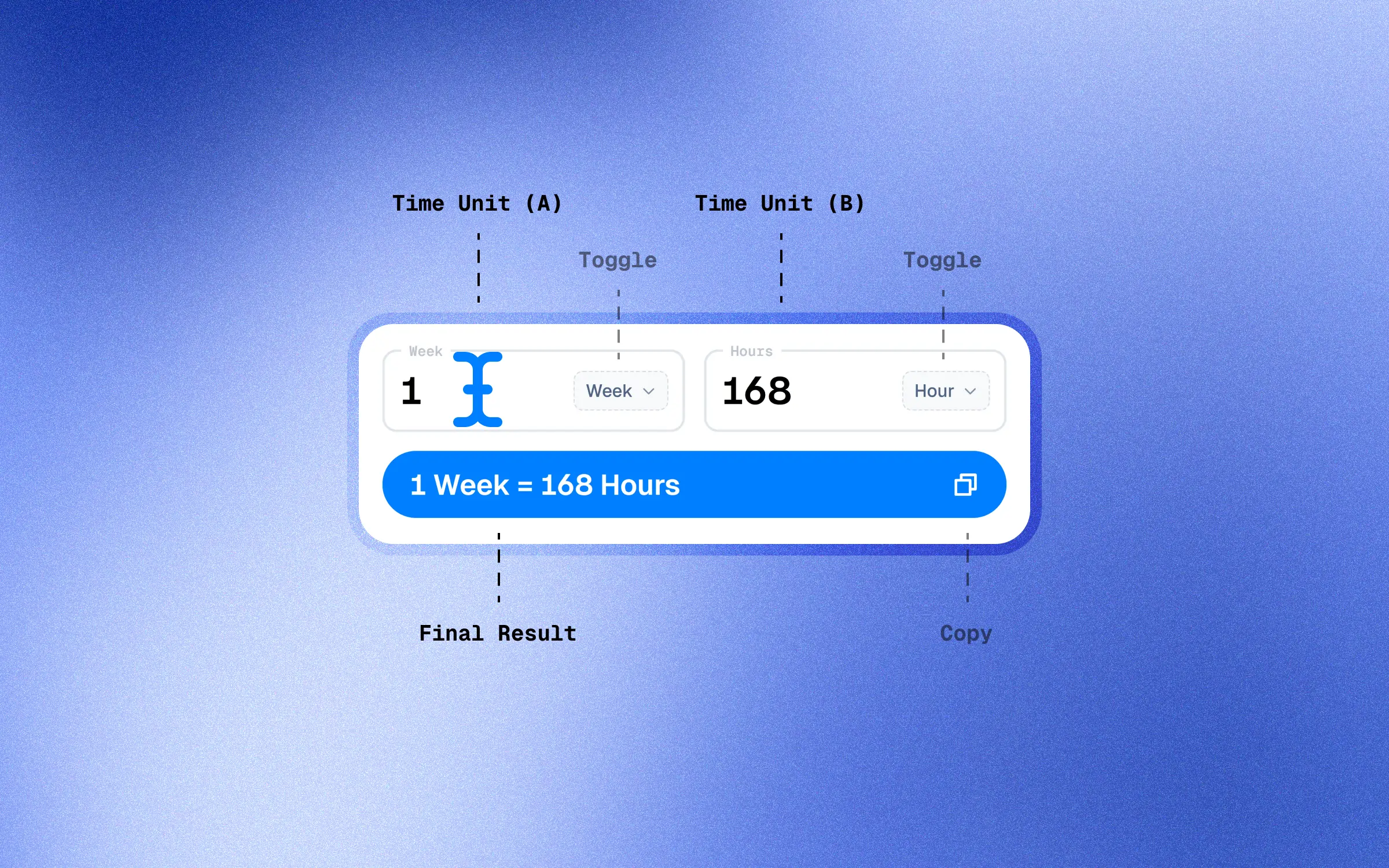THETOOLS
Xrilion|2025
Unit
Megayear
Millennium
Century
Decade
Year
Month
Week
Day
Hour
Minute
Second
Millisec
Microsec
Nanosec
Unit
Megayear
Millennium
Century
Decade
Year
Month
Week
Day
Hour
Minute
Second
Millisec
Microsec
Nanosec
How Many Seconds
in a Day? (86,400)

Mega years?
What are those?
@Reader
How To Calculate Time Units
How Many Seconds In A
Day?
There are 86,400 seconds in one day.
How Many Seconds In A Year?
A year has 31,536,000 seconds. To calculate this, we break down a year into smaller units:
- 1 year = 365 days
- 1 day = 24 hours
- 1 hour = 60 minutes
- 1 minute = 60 seconds
Multiply these numbers together: 365 x 24 x 60 x 60 = 31,536,000 seconds. So there are 31.5 million seconds in a year.
How Many Seconds In A Month?
The number of seconds in a month varies. Here’s a breakdown:
- Months with 30 days: 2,592,000 sec
- Months with 31 days: 2,678,400 sec
- February (28 days): 2,419,200 sec
- February (leap year, 29 days): 2,505,600 sec
To calculate this, multiply the number of days in a month by 24 hours, 60 minutes, and 60 seconds.
How Many Seconds In A Week?
There are 604,800 seconds in a week. To calculate this, multiply the seconds in a day by 7:
- 1 day = 24 hours x 60 minutes x 60 seconds = 86,400 seconds
- 1 week = 86,400 seconds x 7 = 604,800 seconds